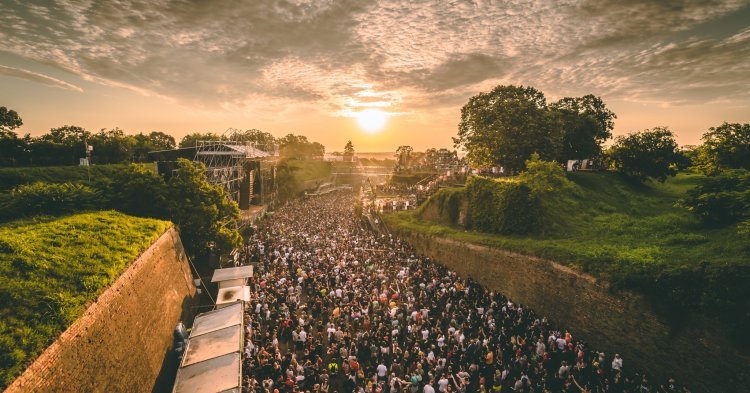The title of European Youth Capital has been awarded by the European Youth Forum every year since 2009. After Ganja, Azerbaijan in 2016, Novi Sad is just the second non-EU city to be given the spotlight as a city that gets to showcase its approach to empowering young people.
Novi Sad’s ‘OPENS2019’ team that oversees European Youth Capital-related activities has indeed spread the word far and wide. New York, Paris, Moscow, Chengdu, to name but a few: Valentina Antić, the International Cooperation Coordinator for OPENS2019, gives a lengthy list of cities where they have held meetings. In New York for example, Novi Sad had a roundtable at a United Nations-sponsored conference where it presented its solutions for involving young people in decision-making processes.
Antić believes that the year as European Youth Capital has made the Novi Sad city council take young people more seriously: the city’s budget for youth projects is increasing, the Mayor now hears from an advisory council of young people, and the city is about to open Serbia’s first youth centre where activities can be held. All that is needed is “the will of the city administration to pass the things, and give the possibility for young people to be the positive change in their local communities”, she says.
This year’s European Youth Capital activities have reached more than 300,000 people in Serbia, and over a million across the world. Among other things, the first day of the 2019 Exit Festival – featuring acts like The Cure and Lost Frequencies – at the city’s historic fortress was dedicated to OPENS. The OPENS website also lists events like the mountain skateboarding World Championship, held in Novi Sad in September. Besides festivals and celebrations of urban culture, the offer of events has included skills development workshops aimed at volunteers in youth organisations.
The year as European Youth Capital has also fostered broader debates in Novi Sad. Valentina Antić thinks the nomination has boosted European identity in the city. “One of the pillars in our programme of European Youth Capital is bringing Europe to Novi Sad”, she says. “Even if we are not EU members, it doesn’t mean that we’re not living European values.” The year has also been an opportunity to raise discussion among the local community on topics like Serbian EU accession and further involvement in the Erasmus+ programme, Antić tells.
Though the European Youth Capital is moving to Amiens in France for January 2020, Novi Sad will keep building on what it achieved in the past year. Projects launched for this year will continue, and the city’s next international challenge is already on the horizon. Namely, Novi Sad will be the 2021 European Capital of Culture, as designated by the European Union. Valentina Antić says that the ongoing year has already prepared the city for the task, as locals have gained a year of intensive experience from organising events.
Serbia has been negotiating its EU accession since 2013, but many sticking points remain, not least the question of Kosovo. As negotiations draw out, building cultural bridges may help combat fatigue among the public. After Novi Sad in 2021, in the following twelve years another four cities from EU accession countries or EEA/EFTA countries will hold the title of European Capital of Culture. The European Youth Capital, for its part, will move to Tirana in Albania for the year 2022. While EU accession might be an arduous process, cultural initiatives are already giving new countries the chance to showcase their place in the European family.


Follow the comments: |
|
